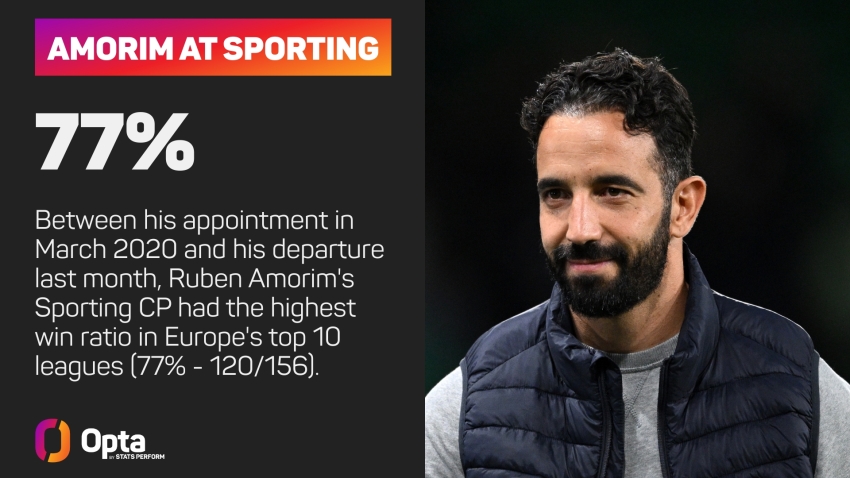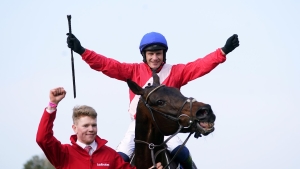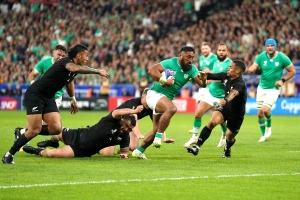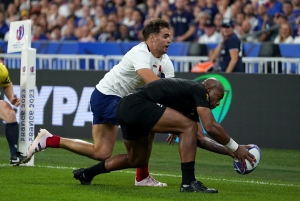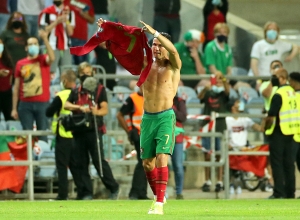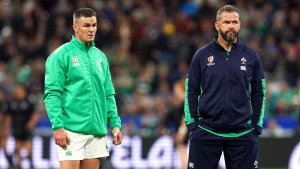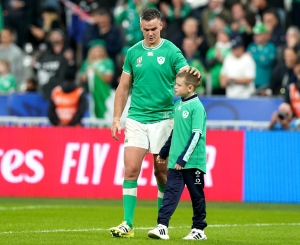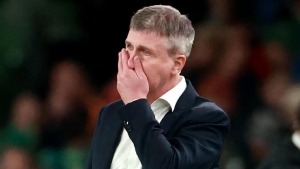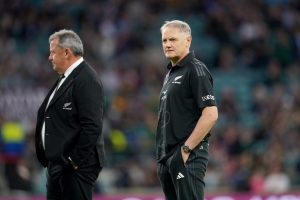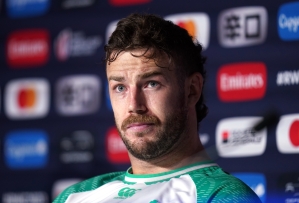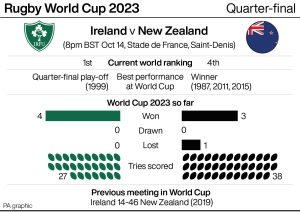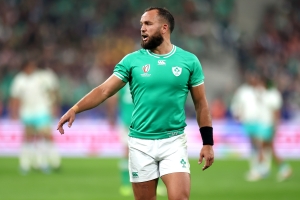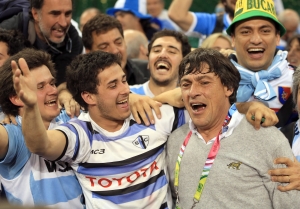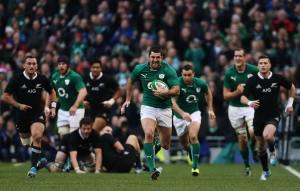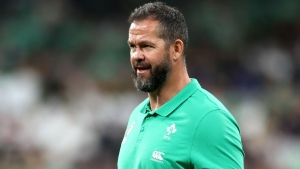Tears were always likely when the end eventually came for the retiring Johnny Sexton.
In a city synonymous with love, art and literature, the thrilling final chapter in the career of one of rugby’s finest creative talents was written.
The storyline – 14 years in the making – was packed with drama and emotion but finished abruptly with a lack of romance and the absence of a fairytale finale.
“It’s small margins and that’s sport,” said Ireland captain Sexton in the aftermath of Saturday evening’s agonising 28-24 loss to New Zealand.
“That’s life. It’s gutting, isn’t it?”
Sexton heads into retirement as arguably his country’s greatest player.
Yet he does so without realising his dream of becoming a world champion following the heartbreak of an all-too-familiar quarter-final elimination on the biggest stage.
The 38-year-old stood hands on hips, head bowed on the Stade de France touchline at the full-time whistle after his fourth such World Cup exit – his nation’s eighth.
Paris, where the influential fly-half spent two seasons with Racing 92 between trophy-laden spells with Leinster, was always destined to provide the backdrop for his last act.
Following successful sojourns in Bordeaux and Nantes, Ireland headed to Saint-Denis for the remainder of their 2023 World Cup fixtures – a minimum of two, a maximum of five.
The formidable All Blacks ensured it would only be three.
Sexton bid adieu by weeping in front of the watching world amid comforting words from his son Luca.
The 2018 world player of the year’s record-breaking Ireland career began against Fiji back in 2009 and brought 118 caps and 1,108 points.
His final months as a professional proved to be a gripping roller-coaster ride which, at times, appeared in danger of derailment.
Multiple injuries and a much-publicised suspension saga had to be overcome en route to France.
View this post on Instagram
A post shared by Rugby World Cup (@rugbyworldcup)
Sexton was appointed Ireland skipper in the ashes of the last World Cup, which also ended with a last-eight loss to New Zealand, with some pundits and ex-players suggesting he was already past his best.
But the relentless taskmaster with a fiercely-competitive nature and a penchant for rubbing up opponents the wrong way had other ideas.
Following a slightly rocky start to his captaincy during the disruption of the coronavirus pandemic, he and the team flourished under the masterful man-management of Andy Farrell.
The summer of 2021 was perhaps a pivotal period.
Sexton – a two-time British and Irish Lion tourist, in 2013 and 2017 – was snubbed by Warren Gatland for the series in South Africa and later confessed it “hurt like hell”.
However, Ireland almost certainly benefited from that setback as the fired-up out-half instead enjoyed time off before returning revitalised.
He guided his country to a Six Nations Triple Crown in 2022 followed by a landmark series success in New Zealand, which propelled Ireland to the top of the global rankings, launched a 17-match winning streak, and led to his third nomination for world player of the year.
Sexton missed out on the award to team-mate Josh van der Flier but continued his renaissance by steering Ireland to a first Grand Slam triumph clinched in Dublin, sealed by a 29-16 win over England.
“It’s unbelievably fitting that in my opinion the best player ever to play for Ireland is able to sign off on a Grand Slam, on St Patrick’s Day, in front of his own crowd,” said head coach Farrell.
Sexton limped from the field that milestone day in what proved to be his final appearance on home soil.
England were always meant to be the opposition for his Aviva Stadium farewell – it just happened five months earlier than anticipated.
Fast-forward to August and the fit-again Sexton was forced to watch from the stands as Ireland defeated Steve Borthwick’s side in a World Cup warm-up fixture.
His three-match ban – punishment for “confrontational and aggressive” behaviour towards referee Jaco Peyper after Leinster’s last-gasp Heineken Champions Cup final loss to La Rochelle – was made more painful by nine-year-old Luca being a team mascot.
Sexton was sidelined for 175 days in total but demonstrated the no-excuses mentality so often championed by Farrell by seamlessly slotting back in at the start of his swansong tournament.
He became his country’s oldest international and leading World Cup scorer with a 24-point haul in the opening win over Romania before a week later taking the overall points record from long-time number 10 rival Ronan O’Gara in the triumph over Tonga.
Electrifying Paris victories against South Africa and Scotland, saluted with rousing renditions of the team’s World Cup anthem – ‘Zombie’ by The Cranberries – from tens of thousands of travelling fans, fuelled hope this could be Ireland’s year.
But the dream was crushed by the three-time world champions, leaving a despondent Sexton to hang up his boots amid a cocktail of emotions.
“Everyone runs into camp and never wants to leave – it’s an incredible place to be and that’s what I’ll miss the most,” he said of the environment fostered by Farrell.
Whether Sexton is foremost in the pantheon of Ireland’s all-time greats remains subjective.
That he leaves a lasting legacy and a void which will be extremely difficult to fill is undeniable.











